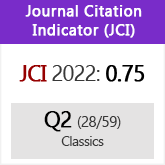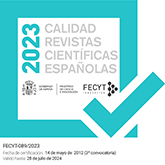Un fragmento desatendido de Alceo: el fr. 369 Voigt = 369 Liberman
DOI:
https://doi.org/10.3989/emerita.2016.16.1511Palabras clave:
Alcaeus fr. 369 Voigt/Liberman, wine, temper, allegory, law of alternationResumen
Alceo fr. 369 Voigt (= 369 Liberman) ha recibido poca atención. Ateneo de Náucratis lo conservó y Eustacio de Tesalónica sintetizó su contenido. Estos dos escritores suponen que el fr. 369 significa que a veces beber vino suaviza el carácter y a veces lo exacerba. Pero es probable que ni Ateneo ni Eustacio leyeran nunca el poema completo de donde proviene el fragmento. Hay que rechazar tambien las interpretaciones que han propuesto los estudiosos modernos (Page, Liberman), porque no tienen en consideración la alternancia expresada en el paralelo ἄλλοτα μὲν..., ἄλλοτα δ᾽... . Además, hay que rechazar una interpretación literal del fragmento, ya que es absurdo imaginar que hombres del ambiente de Alceo pudiesen beber vino malo o vinagre. El autor del presente artículo sugiere una interpretación alegórica a la luz de la «ley de la mutación eterna» o «ley de la alternancia»: a veces se encuentran días afortunados, a veces días infaustos.
Descargas
Citas
Arnott, G. 2000: «Athenaeus and the Epitome: Texts, Manuscripts and Early Editions», in Braund, D. and Wilkins, J. (eds.), pp. 41-52 and 542-543. PMCid:PMC1690587
Barner, W. 1967: Neuere Alkaios-Papyri aus Oxyrhinchos, Hildesheim.
Bowie, E. L. 2000: «Athenaeus’ Knowledge of Early Greek Elegiac and Iambic Poetry», in
Braund, D. and Wilkins, J. (eds.), pp. 124-135 and 554.
Braund, D. and Wilkins, J. (eds.) 2000: Athenaeus and his World, Exeter.
Burkert, W. 2011: Griechische Religion der archaischen und klassischen Epoche, zweite Auflage, Stuttgart. PMCid:PMC3190935
Campbell, D. A. 19902: Greek Lyric I. Sappho and Alcaeus, Cambridge, MA-London, England.
Canfora, L. 1982: «Origine della ‘stemmatica’ di Paul Maas», RFIC 110, pp. 362-379.
Canfora, L. (ed.) 2001: Ateneo. I Deipnosofisti, voll. I-IV, Roma.
Càssola, F. (ed.) 1975: Inni omerici, [Milano].
Desrousseaux, A. M. (ed.) 1956: Athénée de Naucratis. Les Deipnosophistes. Livres I et II, Paris.
Fornaro, S. 2005: Cancik, H. and Schneider, H. (eds.), Brill’s New Pauly, Antiquity, VI, col. 155, s.v. «Heracleon» 3.
Gentili, B. 19842: Poesia e pubblico nella Grecia antica, Roma-Bari.
Gow, A. S. F. 19734: Theocritus, voll. I-II, edited with a translation and a commentary, Cambridge.
Jeanmaire, H. 1951: Dionysos. Histoire du culte de Bacchus, Paris.
Konstantakos, I. M. 2000: «Notes on the Chronology and Career of Antiphanes», Eikasmos 11, pp. 173-196.
Krause, J. 1976: ?????? ?????. Untersuchungen zum Motiv des Schicksalswechsels in der griechischen Dichtung bis Euripides, München.
Liberman, G. 1999: Alcée. Fragments, voll. I-II, Paris.
Olson, S. D. 2006: Athenaeus. The Learned Banqueters. Books I-III 106E, Cambridge, MA - London, England.
Page, D. L. 1955: Sappho and Alcaeus, Oxford.
Porro, A. 1994: Vetera alcaica. L’esegesi di Alceo dagli alessandrini all’età imperiale, Milano.
Porro, A. 1995: «Alceo e le metafore dei giochi simposiali», in Belloni, L., Milanese, G. and
Porro, A. (eds.), Studia classica Iohanni Tarditi oblata, Milano, I, pp. 357-368.
Porro, A. 1996: Alceo. Frammenti, Firenze.
Rösler, W. 1980: Dichter und Gruppe. Eine Untersuchung zu den Bedingungen und zur historischen Funktion früher griechischer Lyrik am Beispiel Alkaios, München.
Snell, B. 1953: The Discovery of the Mind. The Greek Origins of European Thought, Cambridge, MA.
van der Valk, M. 1986: «Eustathius and the Epitome of Athenaeus», Mnemosyne 34, p. 400. http://dx.doi.org/10.1163/156852586X00581
Descargas
Publicado
Cómo citar
Número
Sección
Licencia
Derechos de autor 2016 Consejo Superior de Investigaciones Científicas (CSIC)

Esta obra está bajo una licencia internacional Creative Commons Atribución 4.0.
© CSIC. Los originales publicados en las ediciones impresa y electrónica de esta Revista son propiedad del Consejo Superior de Investigaciones Científicas, siendo necesario citar la procedencia en cualquier reproducción parcial o total.Salvo indicación contraria, todos los contenidos de la edición electrónica se distribuyen bajo una licencia de uso y distribución “Creative Commons Reconocimiento 4.0 Internacional ” (CC BY 4.0). Puede consultar desde aquí la versión informativa y el texto legal de la licencia. Esta circunstancia ha de hacerse constar expresamente de esta forma cuando sea necesario.
No se autoriza el depósito en repositorios, páginas web personales o similares de cualquier otra versión distinta a la publicada por el editor.














